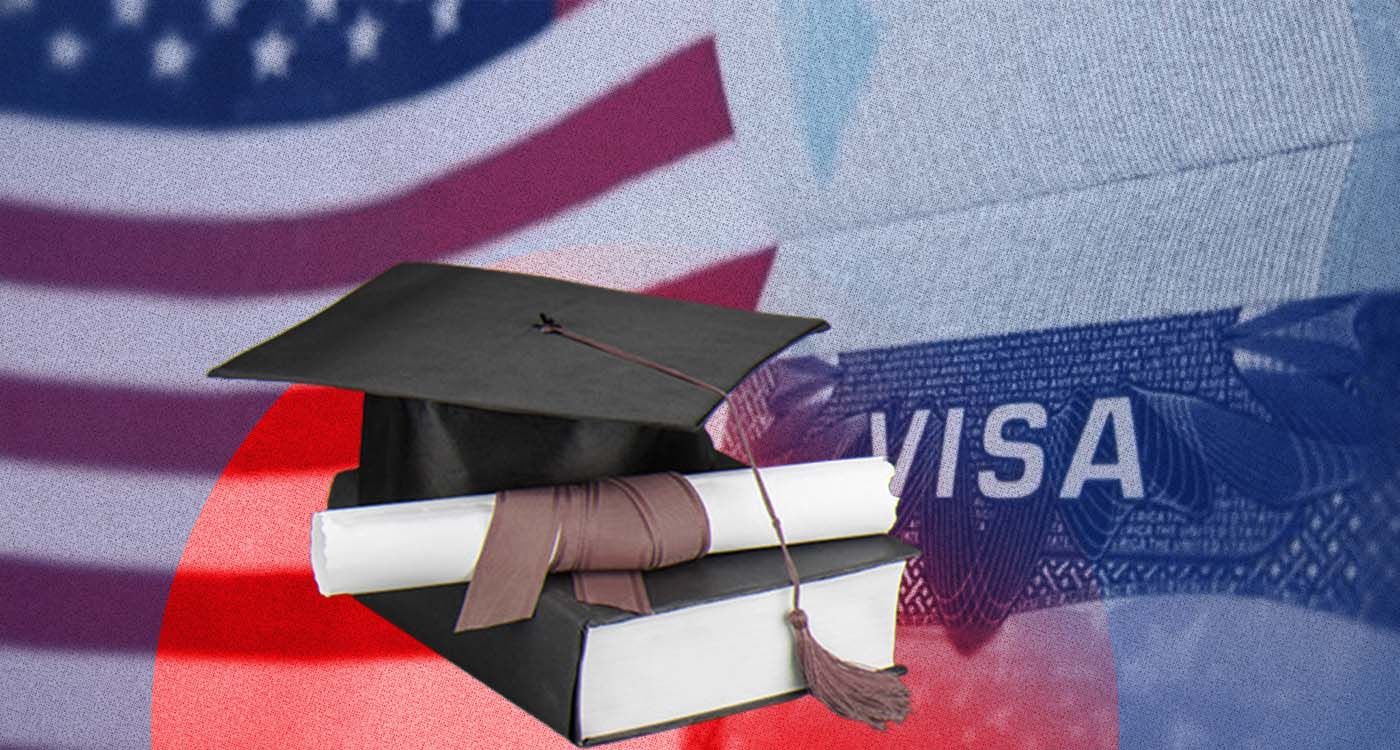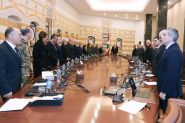
International students aspiring to study in the United States face a new setback. Last Tuesday, the Trump administration announced an indefinite suspension of interviews for new student visa applicants and exchange program participants.
The directive, signed by Secretary of State Marco Rubio and issued by the US Department of State, introduces enhanced national security measures, including systematic screening of applicants’ social media accounts.
Officially, the move aligns with the administration’s broader hardline immigration policy. The State Department said the suspension aims to protect national security and advised prospective students to prepare for significantly stricter vetting procedures.
The measure took immediate effect, applying to “foreign nationals who enter or attempt to enter the United States to begin participating” in academic programs. According to President Trump, it is set to remain in force for six months, with the possibility of extension.
On Thursday, Harvard University filed a lawsuit challenging the policy, calling it part of a “deliberate and escalating campaign of retaliation” against the institution “for resisting government pressure.” In response, a federal court temporarily blocked the measure, exposing a deepening standoff between the White House, the judiciary and the international academic community.
The legal battle unfolds amid growing uncertainty and unrest – further fueled by ongoing protests in Los Angeles, where demonstrators have taken to the streets for a fifth consecutive day to oppose the mass deportation of undocumented immigrants.
What Does It Mean for Lebanese Students?
This policy shift has profound implications, particularly for Lebanese students wishing to continue their studies in the US. Each year, about 2,000 Lebanese pursue higher education in US universities, particularly in fields like medicine. These students are directly affected by the recent visa restrictions.
It is important to distinguish between the two main visa types: the B1/B2 visa, intended for short-term business or tourism visits, and the J1 visa, which covers longer educational and cultural exchange programs and carries stricter requirements. The Trump administration’s latest measures primarily target J1 visas.
Joe’s Case: Approved While Others Were Denied
Joe, a sixth-year medical student at Lebanese American University (LAU), recently obtained a B1/B2 visa to travel to the US in July 2025 for a three-month elective course.
However, many of his classmates had their applications rejected for various reasons: missing documents, administrative errors, consular interviews deemed unconvincing or most critically, insufficient evidence that they would return to Lebanon after their stay. This concern often leads consular officers to suspect that applicants intend to overstay or permanently remain in the US.
Mohammad Seeks a J1 Visa
Mohammad, a fourth-year medical student at LAU, has applied for a J1 visa, which is better suited to his training program at a US hospital. Last summer, he spent 3 months in the US on a B1/B2 visa (primarily a tourist visa) to attend elective courses, which is an initial step before applying for the more formal J1 visa.
This year, Mohammad hopes to secure the J1 visa, which provides a more structured and official status. His application includes strong supporting documents: an official contract from the US university, a letter specifying the exact duration of his stay (one year, renewable), the DS-2019 form (Certificate of Eligibility for Exchange Visitor Status) and a written assurance from the Lebanese Ministry of Education confirming his intent to return home – an essential element to reassure US consular officials.
Despite the new restrictions, Mohammad remains optimistic: “The clarity of my plan and the strength of my application should help me obtain this visa.”
A Difficult Choice
A medical student at the American University of Beirut (AUB), speaking on condition of anonymity, explains that most graduates face two main options: either remain in Lebanon to continue their training or pursue a postdoctoral research fellowship in the US – typically a one- to two-year position at academic institutions. This phase is essential to qualify for a residency program through the Match process.
“These two years of research are critical for our career progression. Most of us rely on a J1 visa but right now, we’re stuck due to delays and restrictions,” he says.
At present, these students face significant uncertainty. “The university can only guide us and help prepare our applications. If we don’t get our visas on time, we risk being replaced,” he adds.
Increased Security at the US Embassy
In a statement to This is Beirut, a US Department of State official confirmed that the US Embassy has implemented stricter security protocols in the visa issuance process. He emphasized that students are still encouraged to apply and that consular staff continually adjust their schedules to ensure each application receives thorough and careful review.
Lebanese Students Already in the US Facing Uncertainty
In a recent interview with CNN, Abdullah Shahid Sial, a 20-year-old student and the co-president of Harvard’s student government, described the current situation as “total panic.” He highlighted that “many students, just 19 or 20 years old, are alone in the US, with families who have often never set foot on American soil.”
A third-year Lebanese student, speaking anonymously to This is Beirut, expressed a deep sense of “uncertainty” amid the “constant changes in Trump administration policies.” Initially planning to spend the summer in Lebanon, he chose to remain in the US out of fear that a negative visa decision could prevent his return, effectively leaving him stranded.
Harvard and the Role of International Students
According to Harvard’s official website, approximately 6,700 international students attend the university, representing 27% of its total enrollment. Consistently ranked among the world’s top universities and boasting 162 Nobel laureates among its faculty and alumni, Harvard exemplifies the global prestige of American higher education.
These figures underscore the critical role that international students – including Lebanese nationals – play in the US academic landscape, a role now jeopardized by political decisions with far-reaching implications.




Comments